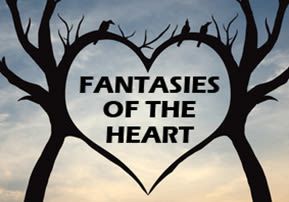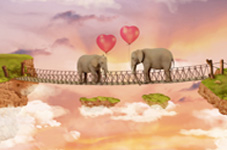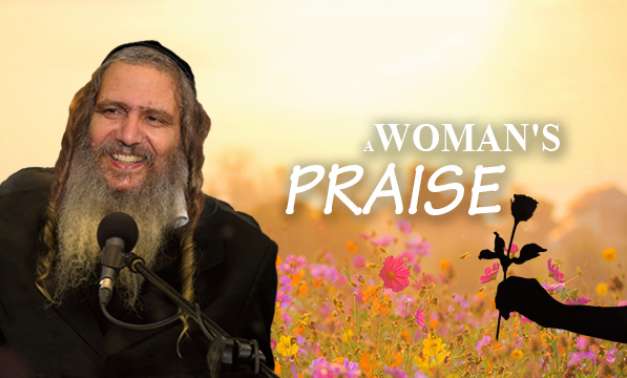
Fantasies of the Heart
What drives these mental images – is it our intellect or emotions? How sure can we ever be that what we see is real, that what decisions we make are based on reality or illusion?

“But My people did not listen to My voice, Israel did not desire Me. So I let them pursue the fantasies of their heart that they might follow their own counsels.”[Psalm 81]
I don’t know if you’ve ever contemplated how much our inner dialogues are constantly playing themselves out on an inner-world cinema in glorious technicolor. Everything we see, we absorb and translate into pictures all backed up in our memory ready to reappear [usually when we don’t want it to]. Our ideas are reinforced by mental images; we live out our lives both on an external and internal dimension.
What drives these mental images – is it our intellect or emotions? How sure can we ever be that what we see is real, that what decisions we make are based on reality or illusion?
In the Garden of Eden, the Torah says that Chava, Adam’s wife, saw that the fruit was good to eat. If you’ve never eaten the fruit before, you can’t say it’s good to eat. What the Torah is telling us is that Chava introduced imagination [dimyon] to world. She fantasized about what the fruit would be like and through the sin introduced the power of illusion.
Now mankind is subject to tremendous tests relating to our ability to perceive reality as opposed to  falsehoods and our purpose in this world is to see things as they really are, not the illusion. The Gemara relates that when a person is about to die, the Angel of Death comes to the person in the form of many eyes, which relate to different fantasies a person allows himself/herself to be subject to through their lives. We need to use one eye, the eye of reality, not several eyes relating to different illusions or falsehoods.
falsehoods and our purpose in this world is to see things as they really are, not the illusion. The Gemara relates that when a person is about to die, the Angel of Death comes to the person in the form of many eyes, which relate to different fantasies a person allows himself/herself to be subject to through their lives. We need to use one eye, the eye of reality, not several eyes relating to different illusions or falsehoods.
Rav Shalom Arush, in The Garden of Yearning, quotes Rav Zev “Velvel” Cheshin zatza'l, one of the Breslever sages of the previous generation, who said in the name of the Zohar [mystical commentary on the Torah] that the Evil Inclination can only enter a person through the eyes. Rav Arush also quotes Rashi’s teaching that “what the eye sees, the heart covets”.
So we see that there is a direct connection between our sight and our emotions.
So how do we correctly perceive reality? A person is given intelligence [not to be confused with academic intellect] and the ability to make good decisions. For the Jew, the Torah was given as a means to connect to Hashem and to bring about a rectification for the world. The Torah tells us how to avoid the pitfalls of the world of falsehoods. When we see something in the world that seems enticing, the more Torah we understand, the more we will be able to sift out the good, the holy, and reject the bad, the impure. However, this relies on one thing: the ability to be honest with ourselves and uproot our personal biases. If we don’t do this, then even our Torah learning will be distorted.
On occasion, people ask me why they should have to keep such and such a mitzvah; after all, they observe, the previous generation never did. On face value, it may seem that they are correct in their observation but seen through a Torah lens, with a bit of scrutiny and self-assessment, we can usually discern a lack of knowledge combined with a level of self-interest. Once we point out the concept of yeridos hador [the descent of the generations], that successive generations have fallen in spirituality, then it would only be expected to see less Jews keeping mitzvoth in recent times, and that if you travel back through Jewish history these mitzvoth were always kept, whether it be in the areas of Shabbat, Kashrus, Mikva, Modesty etc. The fact that we don’t see other Jews keeping particular mitzvoth doesn’t mean that they aren’t essential to our spiritual lives but rather it is sometimes our own desires and personal bias which prevents us from learning about them because it may necessitate a change in ourselves.
There are many, many examples of this inclination to distorted thinking, both on a personal and national level. People make terrible personal mistakes [eg addictions, destructive personal relationships, materialism etc] just because they haven’t clarified the truth for themselves and, on a national level, the Jewish People have allowed themselves to be drawn after false ideologies [eg. haskalah, socialism, secularism] with disastrous results.
Kabbalistically, all falsehoods contain within them Emes – Hashem’s truth – otherwise they couldn’t exist. It’s what gives us free will. In reality then, what we are usually drawn to is the emes, the truth, and not the impure outer coating. It’s a bit like buying a poorly made copy of something, rather than the genuine article.
However, if we would only realize that rather than pursue the falsehoods – which only brings about destruction – we should pursue the Torah of Life and attachment to Hashem, which contains only truth and abundant blessing for the Jewish People and mankind.
“If only My people would heed Me, if only Israel would walk in My ways, in an instant I would subdue their foes…And He would feed him with the cream of wheat I would sate you with honey from a rock.” [Psalm 81]






Tell us what you think!
Thank you for your comment!
It will be published after approval by the Editor.